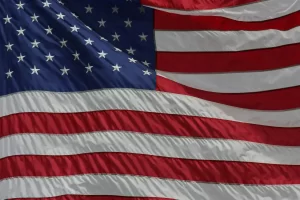SALEM, Ohio When Dawn and Lee Lichtenwalner left Las Vegas in 2008 to take up permanent residence at their 11-acre Leetonia, Ohio, vacation property, turning it into a full-time farming operation was not part of the plan.
I was involved in a couple agricultural programs through my garden club and I thought, I could do this, Dawn Lichtenwalner said of the founding of Dandelion Lane Farm.
It took little to convince her husband, a retired U.S. Air Force veteran with 20 years service who was working for the IRS, to take the risk with her.
I cashed out my retirement, bought a tractor and high tunnels, and we literally bet the farm on the farm, Lee said of the couples 2013 move.
Veterans network
The rookie produce and poultry farmer also spent some of his time networking within his new industry.
A Google search for military veterans in agriculture led him to Davis, California-based Farmer Veteran Coalition. Contacting the organizations founder, Michael OGorman, Lichtenwalner was soon its first farmer ambassador.
Group founder
After 20 years in conventional production agriculture, Michael OGorman began organic farming in Salinas, California, in 1990, and soon became one of the most successful organic farm managers in the world.
It was farming with no seasons off, OGorman said. You are growing a perishable vegetable 52 weeks a year; its kind of insane really.
His retirement after 40 years was short lived. In 2008, OGorman founded the Farmer Veteran Coalition to cultivate a new generation of farmers, by connecting military veterans with careers in agriculture. It is now 3,500 members strong.
Sense of mission
Its a lot of different things coming together, OGorman said of the correlation between farming and the military. The first thing is that there are a disproportionate number of vets who come from rural communities. Secondly, I think this post-9/11 generation is very mission driven. They expected to be sent somewhere (when they enlisted) and they knew it wasnt going to be nice.
That character trait, OGorman said, has many returning vets seeking a sense of purpose that agriculture naturally provides.
One of the first veterans to join (FVC) said Michael, we didnt go into the military because it was easy. We are not only not afraid of how hard agriculture is, we are attracted to it, OGorman said. I was surprised because that was exactly how I had felt about farming; it is a real challenge and makes you dig deep.
Spreading the word
After two attempts to create a label to identify the program and its members were denied by the U.S. patent office as too generic, OGorman read about a Kentucky Department of Agriculture program called Homegrown By Heroes. The program certifies agricultural products produced by farmers, ranchers, and fishermen in Kentucky who have served or are currently serving in any branch of the U.S. military.
When we heard about Homegrown By Heroes, we knew we were never going to get a better name than that, OGorman said.
Gaining support from the Kentucky Farm Bureau and Farm Credit, OGorman was granted administrative license to recruit members and promote Homegrown By Heroes outside Kentucky.
Ohio comes onboard
On Nov. 11, Veterans Day, Ohio became the second state in the nation to partner with Homegrown By Heroes, and Dandelion Lane Farm was named the states first Homegrown By Heroes operation.
OGorman said West Virginia is expected to announce a partnership by the end of 2014 and he expects every state to follow suit within a year, with a goal of signing up 1,000 veterans and $100 million in aggregated sales.
Community support
Ben Shaffar, director of business development for the Kentucky Department of Agriculture, said a recent University of Kentucky survey found 70 percent of respondents would purchase a veteran-made product over one that was not even if that product had a Kentucky Proud label and would pay between 5 and 20 percent more for the veteran-made product.
There is an enormous desire by retailers and consumers to work with military members, he said. So even if a veteran shies away from the hero term, they should join for the opportunities in the marketplace.
The nation is in desperate need of a new generation of farmers, Shaffar said, but both he and OGorman stressed that Homegrown By Heroes is open to all current and past members of the U.S. military, as well as all types of farm operations.
This isnt about a better way to farm, OGorman said. Our industry needs more farmers and veterans need agriculture.
It is 1 percent of the nation that provides our security and now it is 1 percent that feeds us. I think people are in awe of that.
Back on the farm
The Lichtenwalners recently took 11 Dandelion Farm turkeys and 72 ducks to market, adding to a first-year produce crop that included 350 fully organic tomato plants.
Lee Lichtenwalner expects his work as the states Homegrown By Heroes ambassador to likewise expand.
Its twofold, he said of the programs benefits to farmers and the community. We have a lot of veterans coming back from the Middle East with who knows what trauma and agriculture is a calming activity you dont get upset when you are planting and feeding animals is nothing to get excited about. Secondly, you can take a vet, me for instance, they can complete a job with limited instructions.
Lichtenwalner said there is a symbiotic relationship between agriculture and the military that a program like Homegrown By Heroes naturally taps into.
There is a certain amount of tenacity (among soldiers) which you need to get up in the morning and fill a 55 gallon tub of water for your birds when its 9 degrees and there is a 25 mile-per-hour wind and the birds arent even coming out of the coop, he said. Homegrown By Heroes is not saying we are any better than any other farmer, but it lets people know up front that we are vets first who happen to be farmers.





